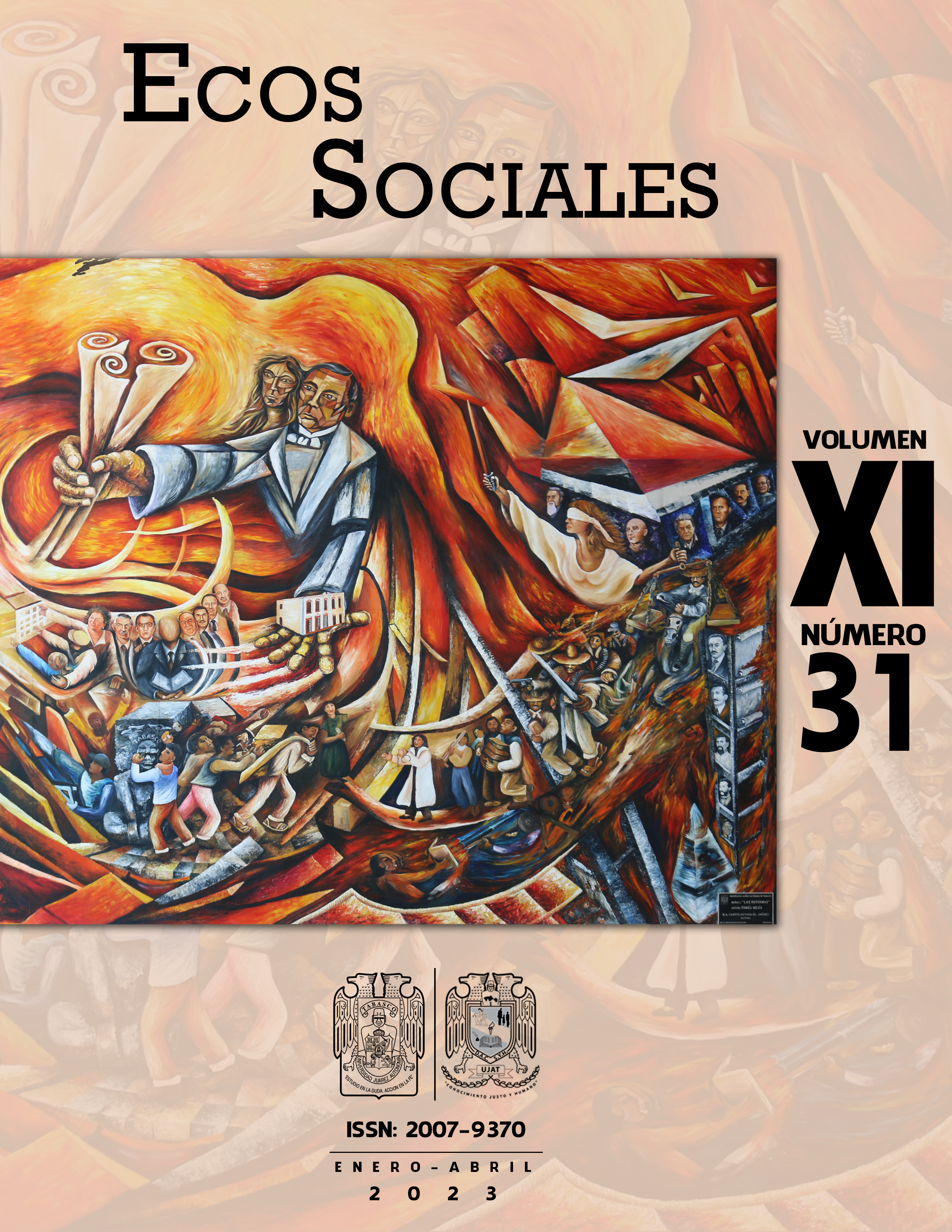RELACIÓN DEL RENDIMIENTO ACADÉMICO CON LAS TECNOLOGÍAS DEL ENTRETENIMIENTO ENTRE ALUMNOS DE LA UJAT (DACSYH)
RELATIONSHIP OF ACADEMIC PERFORMANCE WITH TECHNOLOGIES OF THE ENTERTAINMENT AMONG UJAT STUDENTS (DACSYH)
DOI:
https://doi.org/10.19136/es.a11n31.5794Palabras clave:
rendimiento académico, tecnologías del entretenimiento, escalas de tiempo.Resumen
Este artículo se origina de los resultados obtenidos de la investigación realizada << Relación del rendimiento académico con las tecnologías del entretenimiento entre alumnos de la UJAT, DACSyH>> con el objetivo principal de identificar la relación entre ambas variables. Este fue un estudio correlacional con valor explicativo; a través de la recolección de datos conseguimos valorar el tiempo que los alumnos dedican a la tecnología. Respecto al rendimiento académico, los datos se obtuvieron de la misma manera, siendo los resultados más destacados, los siguientes: Al menos el 70% de los estudiantes dedica más de 3 horas diarias al uso de medios de entretenimiento. El 80% posee un rendimiento destacable y el 20% restante un rendimiento regular; en ese mismo 20% existe la mayor cantidad de alumnos que dedican más de 8 horas diarias y que a su vez son quienes más padecen trastornos como la Ansiedad o el insomnio.
This article originates from the results obtained from the research carried out <<Relationship of academic performance with entertainment technologies among students of the UJAT, DACSyH>> with the main objective of identifying the relationship between both variables. This was a correlational study with explanatory value; Through data collection we are able to assess the time that students dedicate to technology. Regarding academic performance, the data was obtained in the same way, the most notable results being the following: At least 70% of students dedicate more than 3 hours a day to the use of entertainment media. 80% have outstanding performance and the remaining 20% have average performance; In that same 20% there is the largest number of students who spend more than 8 hours a day and who in turn are the ones who suffer the most from disorders such as Anxiety or insomnia.
Referencias
Caso-Niebla, J., & Hernández, L. (2007). Variables que inciden en el rendimiento académico de adolescentes mexicanos. Revista latinoamericana de psicología, 39(3), 487-501.
Rodríguez, O., Gallego, V., Rodríguez, M. J., & López, M. Á. (2012). Adicción a las nuevas tecnologías. Psicología de las Adicciones, 1(1), 2-6. (Rodriguez, O. 2013).
Cuervo-Ríos, J. (2017). Niños y tecnología ¿Oportunidad o amenaza? El Tiempo. Recuperado de http://www. eltiempo. com/tecnosfera/dispositivos/relacion-entre-los-ninos-y-la-tecnologia-84130. (Cuervo, Ríos, J. 2017).
Hernández Sampieri, Roberto, Fernández Collado, Carlos y Baptista Lucio, Pilar (2007). Metodología de la investigación. 2ª edición. México: McGraw-Hill.
(Hernández Sampieri, R. 2007).
Descargas
Publicado
Número
Sección
Licencia
Derechos de autor 2023 Autores & UJAT

Esta obra está bajo una licencia internacional Creative Commons Atribución-NoComercial-CompartirIgual 4.0.



